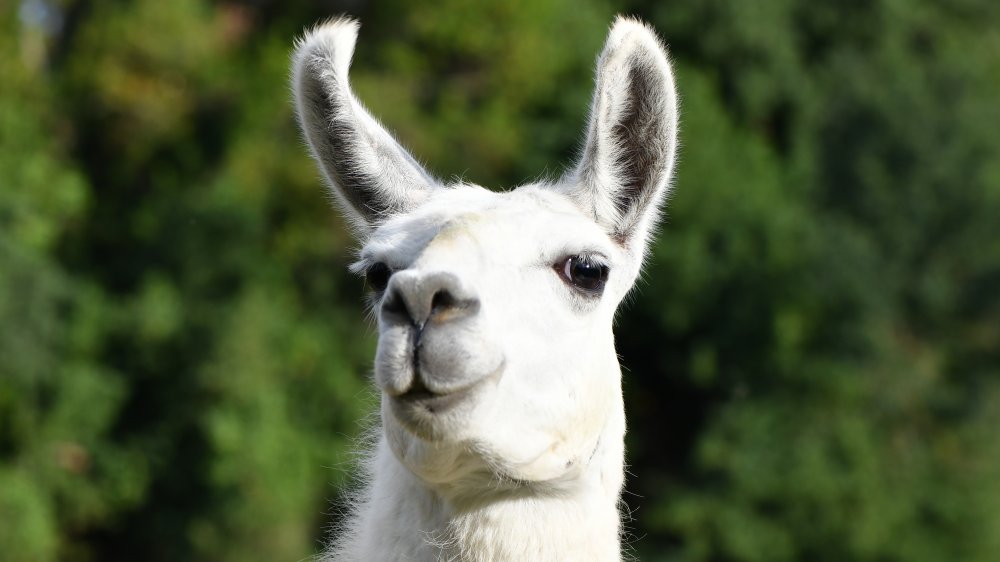Here's How Llamas Could Help Defeat Coronavirus
By now, your eyeballs might be bleeding from reading about COVID-19 and all the suffering it has caused. And if eyes could talk, they might be crying, "Dear God, please make it stop! I can't do this anymore. Words can't come close to capturing the mental exhaustion and hatred I feel from having to see this all the [expletive] time." And if you have a health problem or a job problem, or if your or someone you care about has been affected, it must be doubly — if not infinitely — difficult.
Suffice it to say, the pandemic has been the Clockwork Orange torture scene of news stories, and that's understating it. If only there were something that could offer hope and comfort, something like llamas. You may most associate them with their delightful faces or the leisurely paced chase they led cops on after escaping. But you can save that llama drama for your mama because now instead of going on the lam, llamas might help humanity go ham in combating the pandemic.
Winter the llama puts coronaviruses on ice
Thanks to Game of Thrones and Charles Dickens, whenever winter is coming, you just assume discontent will tag along. But as Futurism details, a 4-year-old llama named Winter might be coming for COVID-19 in a good way. It turns out that llama antibodies have a knack for fending off coronaviruses. Back when Winter was 19 months old, scientists at University of Texas at Austin used Winter's antibodies to thwart SARS and MERS, both of which are coronaviruses. And in May 2020, the journal Cell published a study indicating that Winter's antibodies also put SARS-CoV-2, the coronavirus behind COVID-19, on ice.
According to study co-author Jason McLellan, "This is one of the first antibodies known to neutralize SARS-CoV-2." The tininess of llama antibodies enables them to attach to different regions of coronaviruses more readily than larger antibodies, effectively preventing infection. These are just early findings, and there's a lot more to test and determine before anything conclusive about humans could be claimed, so don't go around drinking llama blood or whatever.
While it would be misleading and irresponsible to call this a possible cure or make concrete promises of any sort, the results experts have reported are promising so far. It at least seems possible that llama antibodies could lead to a vaccine. Typically, vaccines need a one- or two-month head start to provide effective protection. Alternatively, antibody treatment could help infected patients.

